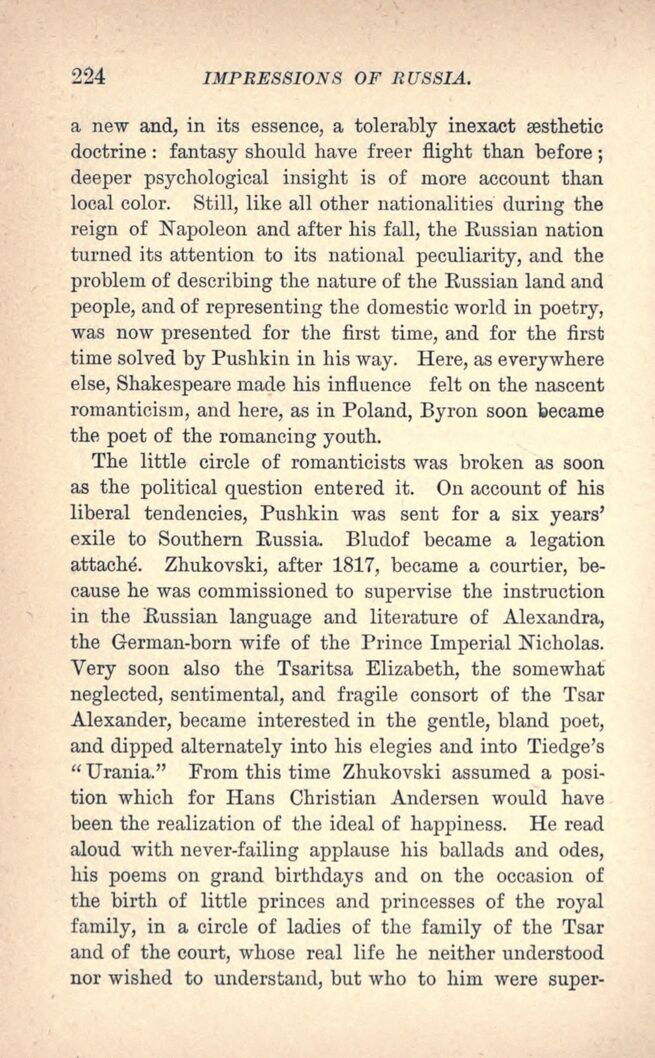
Full resolution (JPEG) - On this page / på denna sida - Impressions of Russian Literature - II

<< prev. page << föreg. sida << >> nästa sida >> next page >>
Below is the raw OCR text
from the above scanned image.
Do you see an error? Proofread the page now!
Här nedan syns maskintolkade texten från faksimilbilden ovan.
Ser du något fel? Korrekturläs sidan nu!
This page has been proofread at least once.
(diff)
(history)
Denna sida har korrekturlästs minst en gång.
(skillnad)
(historik)
a new and, in its essence, a tolerably inexact æsthetic
doctrine: fantasy should have freer flight than before;
deeper psychological insight is of more account than
local color. Still, like all other nationalities during the
reign of Napoleon and after his fall, the Russian nation
turned its attention to its national peculiarity, and the
problem of describing the nature of the Russian land and
people, and of representing the domestic world in poetry,
was now presented for the first time, and for the first
time solved by Pushkin in his way. Here, as everywhere
else, Shakespeare made his influence felt on the nascent
romanticism, and here, as in Poland, Byron soon became
the poet of the romancing youth.
The little circle of romanticists was broken as soon
as the political question entered it. On account of his
liberal tendencies, Pushkin was sent for a six years’
exile to Southern Russia. Bludof became a legation
attaché. Zhukovski, after 1817, became a courtier,
because he was commissioned to supervise the instruction
in the Russian language and literature of Alexandra,
the German-born wife of the Prince Imperial Nicholas.
Very soon also the Tsaritsa Elizabeth, the somewhat
neglected, sentimental, and fragile consort of the Tsar
Alexander, became interested in the gentle, bland poet,
and dipped alternately into his elegies and into Tiedge’s
“Urania.” From this time Zhukovski assumed a position
which for Hans Christian Andersen would have
been the realization of the ideal of happiness. He read
aloud with never-failing applause his ballads and odes,
his poems on grand birthdays and on the occasion of
the birth of little princes and princesses of the royal
family, in a circle of ladies of the family of the Tsar
and of the court, whose real life he neither understood
nor wished to understand, but who to him were
<< prev. page << föreg. sida << >> nästa sida >> next page >>